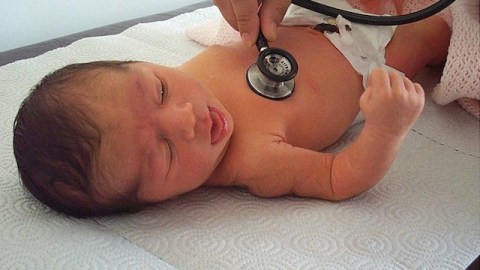The New Baby Bust

After WWII, birth rates in the U.S. rose dramatically. During the war, relatively few couples could afford to have children, and many young men were on the front lines anyway. When the war was over and economy began to expand again, Americans began to have more babies, giving rise to what became known as the Baby Boom.
We now may be experiencing a baby bust. A new Pew Report shows that the birth rate in the U.S. has fallen sharply since 2007 to the lowest level in the hundred years for which we have data. The fall in birth rates parallels the fall in incomes since the start of the financial crisis. In fact, Pew found that birth rates declined fastest in states where the economy had taken the biggest hit. The only state where birth rates rose was North Dakota, where unemployment never got higher than 4.3%. The report also found that birth rates dropped the most among the groups—Hispanic women in particular—that were hit the hardest by the recession. The correlation shows in the historical record too, with birth rates falling in the Great Depression and amid the economic crises of the early 1970s.
Lower birth rates are an adaptive response to scarcity. It is simply not the best time to have children. It’s possible this new doesn’t reflect a long-term decline in U.S. birth rates, sinceAmericans may simply be putting off having children until the economy improves. In fact, birth rates actually rose slightly among women older than 40, who can’t as easily put off having children. But the truth is the economy is likely to stay slow for some time. Even if it weathers the current eurozone crisis, the U.S. economy has been slowing since well before the financial crisis. And with U.S. work force shrinking as a percent of its population the U.S. may never return to levels of growth it saw in the second half of the 20th century. And that could mean that this is the beginning of a long-term slowdown of the growth of the U.S. population.
Photo: Nevit Dilmen





